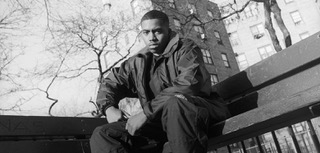By Nyasha Munashe Chiketsani
Rap music, whether you like it or not, is the most influential genre of music today. According to The Independent, “Rap has surpassed rock to become the biggest music genre in the United States, according to the end-of-year report published by Nielsen Music in 2017.
R&B/Rap represented 24.5 % of all music consumption in the US – the largest share and the first time it had led the measurement for a calendar year.” Whether being slandered in the media for its violent, licentious, and misogynistic lyrics or being praised for its ability to unify and give hope to millions, rap music is always under the public eye for one reason or another.
To label rap music as simply a ‘chant’ or a ‘rant’ would be unjust, especially considering its impact on African-American culture and its influence on global society today.
Originating in South Bronx, New York in the early 1970s, hip-hop started as a form of expression for African-American youths and gave them a platform to showcase their talents. These talents included break-dancing, beatboxing, and the most common form of hip-hop, rapping. Through these raps, pioneers such as New York natives Rakim and Eric B influenced younger generations of emcees like Nas and Jay-Z who were crucial in ‘carrying the torch’ and growing the culture and influencing rappers we hear of today such as Kendrick Lamar and Kanye West.
Rap in its essence was created as a platform for young African-Americans to detail their day-to-day experiences in the violent, drug-infested project neighbourhoods they were institutionalised in and a way to release their frustration in a peaceful manner. A classic example of a rap detailing these experiences can be derived from the song ‘The Ghetto’ by The Game featuring Nas in which Nas details “In the gutter, brother despise brother, Throwing threats at each other Broken bottles and bar fights with box cutters; Alcoholics, narcotics, organised; Families sleep from a gas stove.”
In these lines, Nas creates a vivid image of the type of environment he was cast into at a young age and caps off his verse by rapping “Your ‘hood is no different from ours, we share the same dreams, same money, same clothes, and cars, instead, we get the same jail bars”, referencing the mass incarceration of African-American men in the projects that America faced due to the privatised billion-dollar prison system.
However, rap culture has evolved over the years and become much more than tales of the struggles of the typical African-American male and has become a global phenomenon reaching billions of people worldwide and heavily influencing various ethnic groups worldwide.
The evolution of rap has given rise to a new age of rappers commonly referred to as “Mumble rappers” or “Soundcloud rappers” whose lyrics stray from the conventional conscious storytelling art of rap and have a larger emphasis on material possession, heavy drug use, and hedonistic lifestyles. Despite the mass appeal of “Mumble Rap” to younger generations, its emergence hasn’t sat well with all hip hop fans, especially purists or “old heads” as commonly known by mumble rap fans.
Purists believe that mumble rap is a stain to the culture and is contributing its decadence and view the inability of the younger generation of mumble rappers to pay homage to the founders of the culture as a sign of blatant disrespect. On the other end of the spectrum, the younger generation opposes this view and believes that the ‘old heads’ are the ones holding back the culture as they cling to their ideals based on nostalgia on what hip hop should sound like thus stunting the culture’s growth.
Regardless of who is correct in the ongoing war between conscious or ‘woke’ hip hop purists and the experimental new age of mumble rappers, both sides dominate radio airwaves worldwide and flood our social media timelines with their trendsetting content.
In conclusion, I would consider rap to be much mo~re than just a ‘rant’ or a ‘chant’ but rather a commercialised global culture with its roots being derived from African-American culture in the early 1970s.
